Competition between belugas and Greenland halibut in Cumberland Sound in the Arctic has changed with the climate. Belugas and halibut are considered intraguild predators, i.e. predators that feed on one another to reduce competition for resources. Researchers have tracked predation between the two species over a 30-year period. Their findings show that the belugas consume […]
Tag: climate change
New method uses over 200 years of data to track early bloomers 
There’s now a tool to find out whether your flowers are blooming unusually early in the season. Thanks to scores of data recorded by both researchers and citizen scientists, the new statistical estimator contrasts the time a flower bloomed over the past two centuries to observation in the present day. Study authors say that their […]
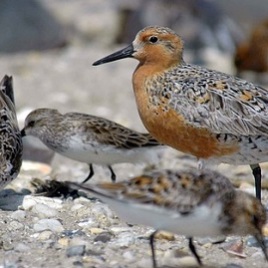
Survival of the fullest: Red knots’ chances of surviving winter increase with its body weight 
Endangered rufa red knots – which make one of the world’s longest migrations, from southern South America to the Arctic – are more likely to leave for breeding grounds earlier, arrive sooner and breed successfully if they start out their summer migration on a full stomach. Using innovative radio tracking, researchers observed a group of […]
Scientists create a global tool to help countries plan for better conservation funding 
Conservation funding can mitigate biodiversity loss if those finances are invested wisely, and a newly designed model aims to help governments accomplish this goal over time. Authors of a new study designed an evidence-based model to help predict the impact of conservation funding on biodiversity loss in 109 countries. Their data revealed that, in the […]
Greenhouse emissions have to be continuously reduced to meet Paris Agreement goals 
In order to limit the amount of global warming by 2020 to only 1.5 degrees Celsius, countries under the Paris Agreement may have to strengthen their carbon reduction pledges, a new study suggests. Researchers assessed remaining carbon budgets that are compatible with limiting warming to 1.5 °C by using a simple carbon-climate model, key properties […]
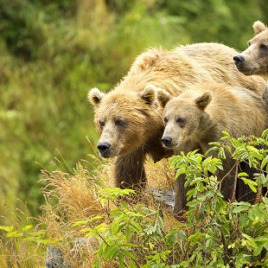
How climate change has altered Kodiak bears’ feeding habits
Red elderberry and sockeye salmon make up a large portion of a Kodiak bear’s diet; usually, the bears treat themselves to spawning salmon before the elderberry season begins. Recently, warmer springs have shifted the elderberry fruiting time to an earlier period, which coincides with the salmon spawn. Researchers observed how warmer springs affected the bears’ […]
2016 yet another exceptionally warm year, experts confirm
Global temperatures in 2016 have reached a peak high of 0.8 degrees Celsius above their level in the period between 1961 and 1990. This is the second year in a row to produce record global temperatures – although there isn’t a significant increase from 2015, according to the study authors. Warmer global temperatures in 2016 […]
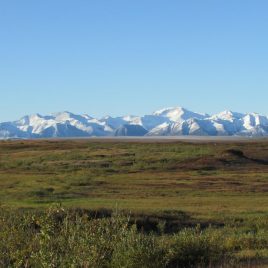
The cycle of mercury pollution in the Arctic tundra 
Human activity has been a major source of mercury pollution in the Arctic, and a new study has identified the form most often taken by the pollutant: gaseous elemental mercury (GEM). The News & Views article discusses how the Arctic tundra acts as a major sink for mercury, as the local plants uptake GEM from the […]
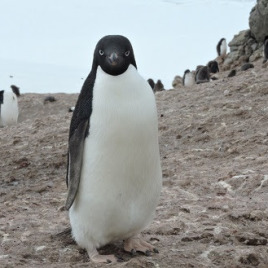
A rare look at the potential effects of climate change on terrestrial species in Antarctica
Much research has been dedicated to studying the effects of climate change and global warming on the Antarctic ice sheet and sea levels; but the same can’t be said about the ice-free parts of the region, which cover less than 1% of the continent. Researchers modelled the potential effect of climate change under two Intergovernmental […]
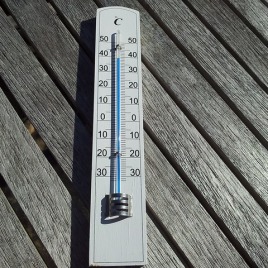
Killer heatwaves are more common than we think 
Results of an extensive literature review show that lethal heatwaves are more common than previously thought, and suggest that the extreme heat conditions will continue to arise even if greenhouse gas emissions are drastically reduced in the future. Researchers found over 1,900 cases of locations worldwide since 1980 where heatwaves have killed people, and identified […]
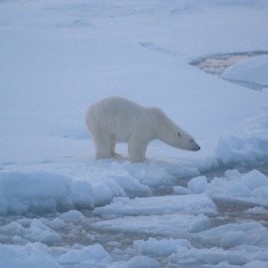
Lower mercury levels in polar bears could be a sign of climate-related diet shift 
A drop in mercury levels was discovered among southern Beaufort Sea polar bears, something the researchers say may suggest a changing diet and a shift in foraging habits. Scientists collected hair samples from Beaufort polar bears over a seven-year period, and measured the mercury concentration in these samples. Results showed a 13% drop in mercury […]
Reducing ambiguity in the Paris Agreement can help better estimate its benefits
Estimates in greenhouse gas reductions on the terms of the Paris Agreement can be improved by 10%, if participating countries make a commitment to submit their climate plans every five years. Paris Agreement aims to limit global warming to below two degrees Celsius by 2030. However, the current result estimates vary by as much as […]
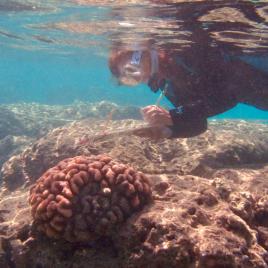
Hawaiian corals at risk of extinction due to climate change, despite protection
Researchers have documented a third global coral bleaching event, which ended just in 2016, at the Hanauma Bay Nature Preserve (HBNP) on the island of O’ahu, Hawai’i. They found that 47% of reef flat corals at HBNP bleached overall and 9.8% of corals died at Hanauma Bay during this time. This means that, despite their […]

Climate Change, Extreme Heat and Health | SMCC Backgrounder
There is no denying it and no doubt about it: our planet is warming and climate change is well underway, around the world and right here in Canada. And extreme heat events are one of the consequences. Periods of extreme heat are uncomfortable, but they can also exacerbate existing health conditions, such as asthma, and […]
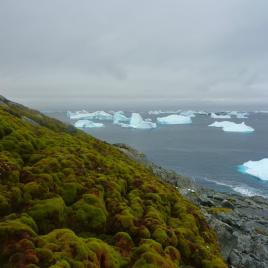
Moss study reveals widespread climate change in the Antarctic
Moss from additional sites on the Antarctic Peninsula has allowed scientists to get a clear picture of the ecological changes the region underwent over the past 50 years. A new study builds on previous research from 2013, where scientists studied mosses and microbes growing at the southern end of the Antarctic Peninsula. In the recent […]
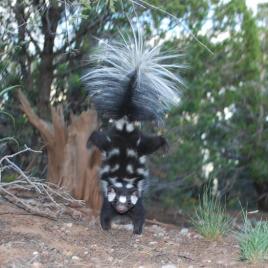
Ice Age climate change more important than geological barriers in spotted skunk evolution
The evolution of Western spotted skunks—tiny, maze-patterned carnivores with a unique hand-stand spraying technique—was influenced by climate change, not geological barriers, new research suggests. Spotted skunks can be found throughout western United States and Mexico, living in a variety of climates. Studying the evolution of skunks may seem arbitrary, but in fact, these small carnivores provide […]